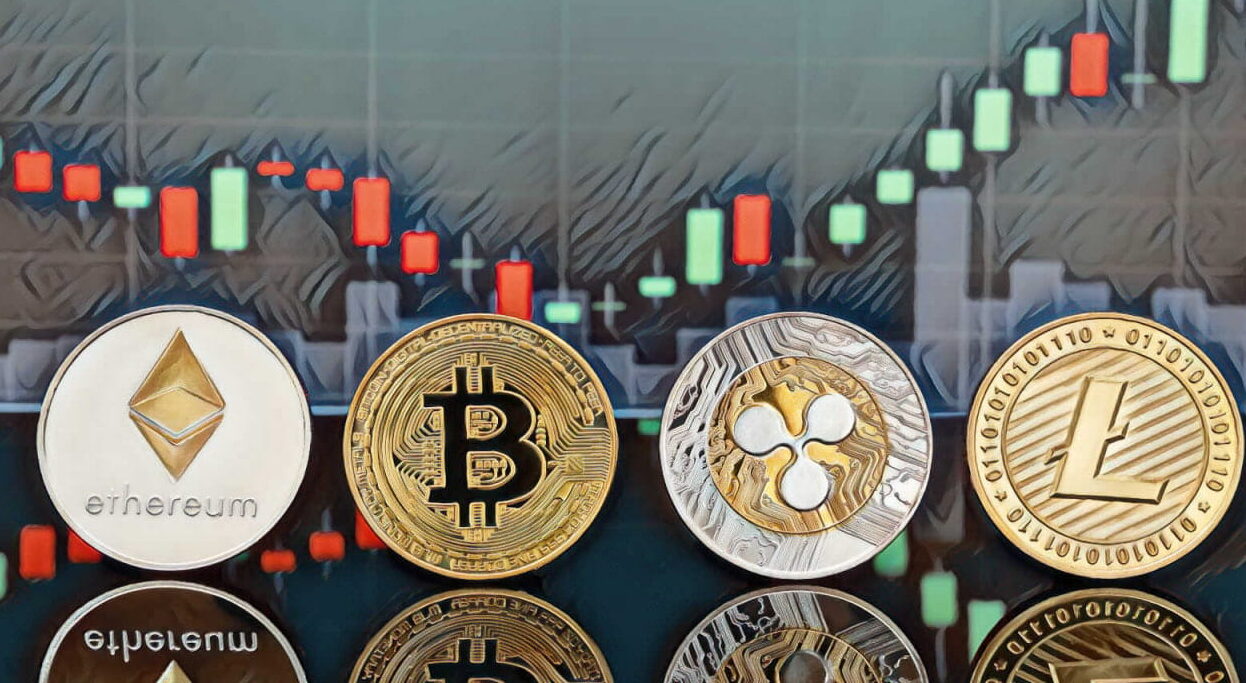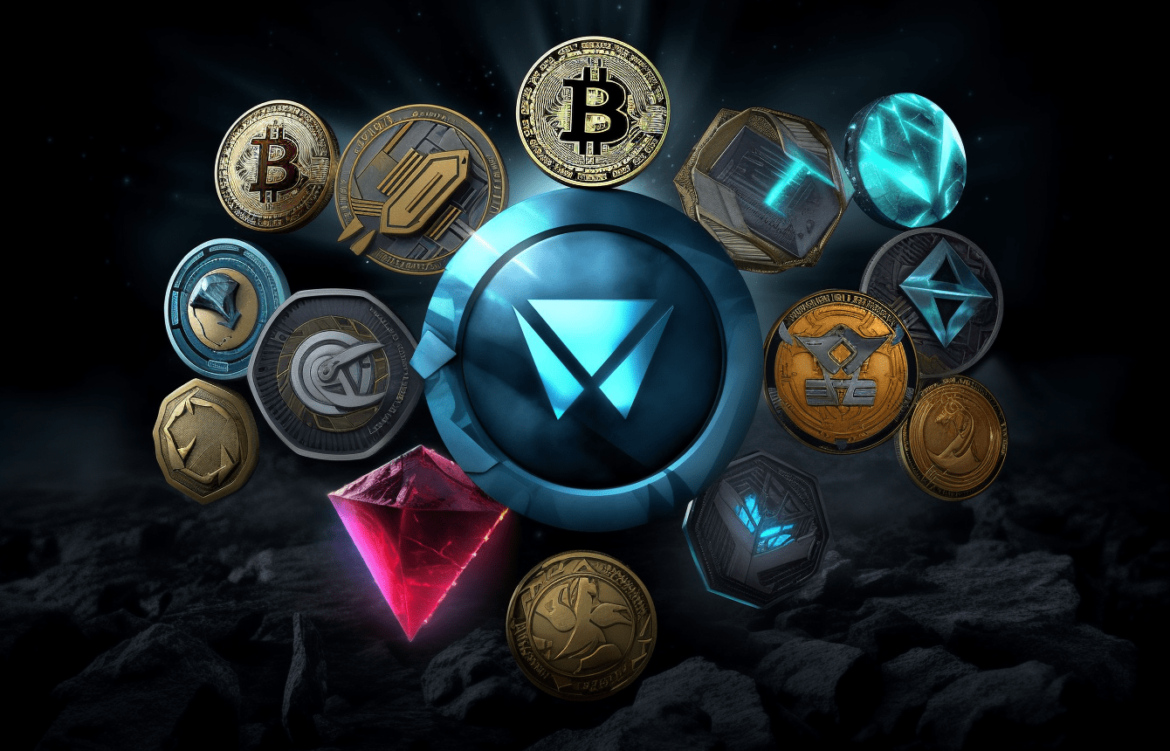Altcoins have become clearly more than merely substitutes for Bitcoin in the fast-changing realm of cryptocurrencies. These digital assets—which include all cryptocurrencies except Bitcoin—are progressively impacting global financial systems, distributed apps, and technical innovation, and their influence on Altcoin news dominates headlines as we go through 2025 with updates on new blockchain technologies, increasing market caps, and innovative use cases spanning much beyond basic peer-to-peer transactions. Altcoin trends 2025
Although Bitcoin is still the most widely used cryptocurrency, the rising popularity of coins like Ethereum, Solana, Avalanche, and Cardano indicates a change in investor interest and development emphasis. Decentralized finance (DeFi), non-fungible tokens (NFTs), gaming ecosystems, and the larger Web3 infrastructure all center on altcoins. The complexity of the industry grows as it develops; this calls on developers, investors, and legislators to be current on market trends, security issues, and technology innovations.
Institutional Growth and Regulation
The rise of institutional investment drives cryptocurrency activity. Starting in early 2024, hedge funds, venture capital firms, and conventional financial institutions studying cryptocurrencies for portfolio diversification have progressively entered the digital asset market. Solana (SOL), Polkadot (DOT), and Chainlink (LINK) are in demand as more financial instruments, such as cryptocurrency ETFs, incorporate Altcoin trends for 2025 alongside Bitcoin and Ethereum. Meanwhile, cryptocurrency projects are innovating faster. Ethereum’s post-merge improvements—Layer 2 integration and Proto-Danksharding—support its role as a smart contract center, whereas Solana’s low costs and high throughput attract developers.
Additionally, interoperability-driven networks like Cosmos and Polkadot are enabling previously segmented blockchain systems to communicate, creating a new cross-chain cooperation paradigm. By 2025, regulatory clarity—or uncertainty—is also affecting the bitcoin business. The SEC has increased efforts to classify several Altcoin trends in 2025 as securities, affecting investor behavior and exchange listing requirements. In tandem with these advancements, the EU is implementing its Markets in Crypto-Assets (MiCA) legislation to promote harmonization among member states. These regulatory frameworks have eliminated non-compliant projects and increased investor confidence in well-organized systems.
Altcoin Innovation and Expansion
Altcoins’ basic power resides in their capacity to challenge the limits of blockchain technology. Ethereum 2.0, sometimes referred to as “The Merge,” transitioned the network from Proof-of-Work (PoW) to the more sustainable Proof-of-Stake (PoS), which reduced energy usage and increased scalability. scalability. Other cryptocurrencies, including Tezos, Near Protocol, and Cardano—all of which use different consensus processes to reach scalability and decentralization—have modeled this improvement. Moreover, Layer 2 solutions significantly aid the scaling of altcoin networks.
 Decentralized apps may perform transactions off-chain and securely land on the main chain using platforms such as Arbitrum, Optimism, and Polygon. Greater acceptance and user retention across DeFi platforms and gaming dApps follow from this invention’s drastically lowered congestion and gas prices. NFT ecosystems are also growing outside the boundaries of art Altcoins enable real-world use cases in identity verification, virtual real estate, music licenses, and even intellectual property tokenizing. Avalanche and Flow have attracted special interest because they enable high-volume NFT transactions with minimal environmental impact and low fees. Another front where Altcoin trends 2025 are advancing is artificial intelligence (AI). Aiming to reinvent data ownership and intelligent automation in distributed networks, projects including Fetch.ai and Ocean Protocol are merging blockchain with AI-driven data markets and autonomous agents.
Decentralized apps may perform transactions off-chain and securely land on the main chain using platforms such as Arbitrum, Optimism, and Polygon. Greater acceptance and user retention across DeFi platforms and gaming dApps follow from this invention’s drastically lowered congestion and gas prices. NFT ecosystems are also growing outside the boundaries of art Altcoins enable real-world use cases in identity verification, virtual real estate, music licenses, and even intellectual property tokenizing. Avalanche and Flow have attracted special interest because they enable high-volume NFT transactions with minimal environmental impact and low fees. Another front where Altcoin trends 2025 are advancing is artificial intelligence (AI). Aiming to reinvent data ownership and intelligent automation in distributed networks, projects including Fetch.ai and Ocean Protocol are merging blockchain with AI-driven data markets and autonomous agents.
Influential Voices and Events
The words and deeds of important players in the crypto market often shape altcoin stories. With a long-term view of creating scalable and safe distributed systems, Ethereum co-founder Vitalik Buterin continues to be a thought leader by regularly publishing research and driving network updates. Binance CEO Changpeng Zhao (CZ) remains a potent market mover, especially through fresh listings and exchange changes that can quickly cause fluctuations in altcoin values.
Events such as the ETHGlobal hackathons, the North American Blockchain Summit, and CoinDesk’s Consensus serve as launchpads for creative ideas and strategic alliances. Attracting developers, legislators, and institutional investors, these meetings promote communication and cooperation while establishing the direction for industry priorities in the following months.
Afollowingin Security and Strategy
Security remains a top issue for both developers and investors in altcoins. Rising DeFi exploits, rug pulls, and phishing attempts have drawn fresh focus on best practices. Standard advice is now multi-signature wallets, hardware-based cold storage, and two-factor authentication. Strong governance structures and open codebases help projects to draw long-term investors and evade regulatory scrutiny.
 Moreover, risk management requires knowledge of market volatility. Although it can be both a benefit and a drawback, altcoins often show more precise price swings than Bitcoin. Therefore, 2025 Therefore, 2025 will see the adoption of key tactics, such as portfolio diversification and frequent audits of smart contracts.
Moreover, risk management requires knowledge of market volatility. Although it can be both a benefit and a drawback, altcoins often show more precise price swings than Bitcoin. Therefore, 2025 Therefore, 2025 will see the adoption of key tactics, such as portfolio diversification and frequent audits of smart contracts.
Final thoughts
Altcoins are promising but competitive. Only valuable projects, engaged communities, and powerful technology will survive thousands of competing ventures. As cryptocurrencies merge with banking, gaming, AI, and digital identity, altcoins will stay crucial. Emerging businesses like distributed science (DeSci), regenerative finance (ReFi), and Web3 social media will likely use ecosystem-specific altcoins. Developers and investors should stay updated with reliable news sources, analytics dashboards like CoinGecko and Messari, and real-time blockchain statistics via Glassnode and Etherscan. Staking, wallet, and smart contract guides assist new bitcoin users in getting started.



